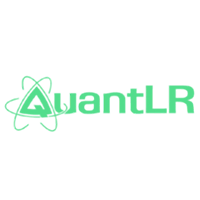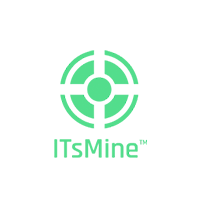The Labs/02 Advantage: Maximizing the IIA Program For Early Stage Startups

Shai Eisen, Partner at Labs/02
Labs/02 is unique in that it has a double-vetting process in place for early stage startups to be included in its sought-after program.
One aspect of this process is the requirement for early stage startups to pass the Israel Innovation Authority’s (IIA) challenging vetting process.
The IIA’s mission is to strengthen the Israeli innovation ecosystem, and promote innovation, entrepreneurship, and disruptive technologies. The IIA has robust vetting procedures for early stage startups to be accepted to its prestigious programs, including evaluation by leading experts to ensure that accepted technology has:
- Significant technological innovation
- Significant business potential, including in the global market
- A suitable team that has the potential to meet the proposed work plan and lead the company to success
- The company has the potential to become a significantly large entity
How does Labs/02 prepare early stage startups for this process? What unique value does Labs/02 provide that isn’t available elsewhere – and what does it mean for an early stage startup to successfully complete this process? Read on to find out more!
The IIA process from a Labs/02 perspective for early stage startups
One of the key areas for Labs/02 when assessing a potential early stage startup to invest in, is the company’s passing the rigorous IIA process.
This process is known to be challenging, and without professional support can be extremely difficult for early stage companies. So where does Labs/02 start when it comes to potential investments and the IIA process?
Stav Erez, a Partner at Labs/02, explains: “Say we want to invest in a company; we start preparing with them for the IIA process. First, we need to compile a thorough application form. We need to be super precise about the need, the product, the technological innovation, the business model, the go-to-market strategy, the competitive analysis; we also have to look at questions investors usually don’t ask, for example, ‘What are the other possible approaches to solve this particular problem?’”
The Labs/02 team needs to get super granular when it comes to the founders and their capabilities – from both a business and a technological perspective – and must ensure that they can deliver on their milestones. And this is just the first phase of the process.
After this initial stage, an early stage startup is scheduled for an assessment with an expert from the IIA. This is usually an experienced technological expert who often also has product and business experience, but whose main focus is on technology. This review usually takes 4-5 hours, and can take even longer.
“And even after this,” adds Ofer Dar, Partner & CFO at Labs/02, “there will be follow-on information required, which can take the process to 10 hours or more. These are specific questions raised which need to be dealt with; sometimes via phone call or Zoom, and sometimes in writing.”
While the IIA is primarily looking at technological innovation and a solid business model, it’s important to note that something that’s very important to IIA is the impact and social benefits that the company will bring, particularly within Israel.

Asking the tough questions of early stage startups
Dealing with early stage startups is a very specialized skill. There is incredible potential upside, but often there is also very little in terms of business foundations. Such early stage startups and their founders are generally very enthusiastic, with grand ideas of what they want to build. But at this point, a lot of this information is in their heads, and not on paper as a full plan.
Ofer explains this: “Very little is put down as a concrete plan, it’s more of a concept. So while this IIA process can be seen as a burden, we see it as a tool to streamline founders’ plans. I like to say that these plans are like Swiss cheese, full of holes. But at least now we know the holes, we’re aware of them, and the more we see the better. Because now we can address these, strengthen the company’s planning, and increase its chances of success.”
The IIA process, through its series of “tough questions,” helps the Labs/02 team streamline this process of finding “holes,” and build a solid plan for the company.
By putting this process so early inside its due diligence process, and bringing the company in early, everyone is aware of exactly where the company is at, and their situation. It’s a challenge, and it’s not simple.
Overcoming the challenges
There are many challenges that the IIA process poses to early stage startups.
One of these is time. Early stage startups are updated that they need to apply by a certain date, and once you add the month or so that the preparation takes, then add the IIA responding within 60 days – and only then things get moving from there; in a time-sensitive world of an early stage company, this is a pressing challenge.
Another is resources, particularly financial resources. Early stage startups sometimes need the money to actually start development. They have to stop what they are doing to just focus on the IIA process. From mornings to late nights, this requires a lot of effort.
Ofer notes that, “First, keeping your head in the sand, thinking there are no issues with a particular company or founding team, is in itself a problem. Our process reveals problems. Sure, we won’t know all the problems, but we’ll have a much clearer picture of the company and the challenges being faced, and therefore will be better prepared to surmount them.
“Then, together with the company, we decide on: priority1, priority 5, and so on. Priority 1 needs to be dealt with immediately. Priority 5 might be important, but we have time.”
Moreover, there are some issues where early stage startups lack the people inside their core team to solve. Back to the holes in the cheese example; the company might not have the right go-to-market capabilities or expertise.
That’s another area where Labs/02 steps in: the organization has the capability and people to check, review, and strengthen early stage companies’ plans and assumptions, as well as the resources to fill in the gaps. It might be around financials and revenue models. Or assisting where current numbers aren’t realistic.
Ofer continues: “In the past 10 years, every company I’ve seen has given me an Excel spreadsheet that shows within 3 years how the company will be making tons of money. I say: they are always on the dot with expenses, but they always miss revenues! So, together, we strategize around their way of thinking, we validate and review their insights, and come back with solutions.”
“We’re super hands-on,” notes Stav. “We assist with market research, speak with potential customers including multinationals to get their feedback and market validation, assist with competitive analysis and more. Usually, early stage companies struggle with getting to the relevant decision makers, let alone getting honest feedback – so we are here to help them with this important step. In addition, we have a Menachem, the Labs/02 CTO, who helps the companies ask the right questions on their product and technology milestones and surface important insights. So in summary: we’re in this with them, sitting next to them.”
Ofer and Stav estimate that just in the pre-submission phase, the Labs/02 team invests close to 100 man-hours in each potential investment company.
They agree that this investment can be felt in the quality and depth of the submissions to the IIA. The document is not just a story – it’s backed by hard data and research.
Assisting early stage startups get through the IIA process
What does it mean for an early stage startup to have successfully completed the IIA process, together with Labs/02?
For one thing, there is the funding from the IIA, and the fund matching provided by Labs/02: one of the key differentiators of the organization is that Labs/02 puts in 5x to 6x more than the IIA requires.
But it’s much more than this.
Critically, it’s a stamp of approval: for the company’s technology and its business plan, and this is huge for the company and of course current and future investors.
Adds Ofer: “The process, the milestone, the achievement is that they have raised additional funds. The IIA process is not the target, it’s a means for us to approve the investment and for the company to reach the next fundable milestone.”
This means the early stage startup has reached the next level – the company has experienced its first success, which bodes extremely well for its future.
It means there is in-depth technology in the company. It doesn’t give 100% certainty that the company will succeed of course, there is no such thing in startups.
But it says the company has innovation, a high technology level, and that all of this including the founders were reviewed by an independent, knowledgeable third party, which is extremely valuable.
A critical part of the Labs/02 vetting process for early stage startups
Stav explains that “With early stage companies, it’s hard to make the right decision as you’re based on relatively limited data. This is unlike growth stage companies, where you see customers numbers, growth, and financial data. Here, you’re basing your decision on potential, and validating the need and the team. This is why the IIA process is so critical.”
This is also an opportunity for Labs/02 to work closely with founding teams – to learn how they deal with challenge and adversity, particularly when things get rough.
In addition, the whole IIA process is an ideal way to validate the need and technology of a company. And after this process, the Labs/02 team and future investors have additional assurance that what the early stage startup offers is unique and innovative.
Ofer adds that “For early stage companies, a structured process like this that helps the company leadership make informed decisions, which is so critical. It creates a roadmap around what needs to be done, it puts in milestones, it allows us to measure achievements and course correct where necessary.
“We learn founder strengths and weaknesses, and whether they are coachable. How they react to hard feedback. We don’t sugarcoat anything, and see how they deal with disagreements, and we help build this capability for them.”
Overall, it’s easy to see the value that this process provides, why it’s so important for early stage startups to go through, how Labs/02 both leverages this process and supports it, and why Labs/02 companies are better placed for long-term success.
For more information about Labs/02 or any Labs/02 portfolio company, contact partner Shai Eisen: [email protected]







































